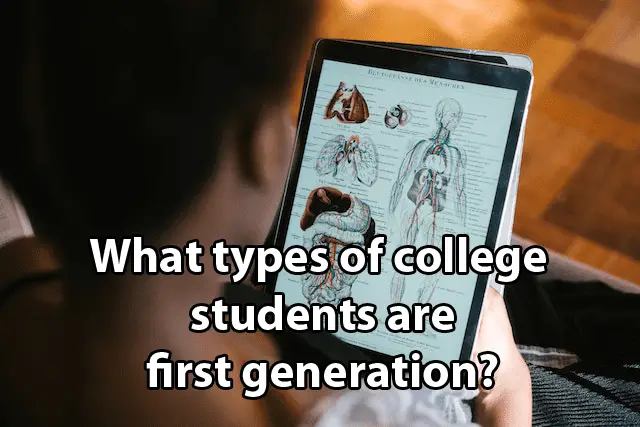
Breaking Barriers: How Scholarships Support First-Generation Students
For many first-generation college students, the journey to higher education can be filled with challenges and obstacles. One of the biggest barriers they face is the financial burden of attending college. Without the financial resources to pay for tuition, books, and living expenses, many first-generation students may feel discouraged from pursuing their dreams of obtaining a college degree. However, scholarships play a crucial role in breaking down these barriers and providing much-needed support to these students.
Scholarships are a form of financial aid that does not need to be repaid, making them an attractive option for students who may not have the means to pay for college out of pocket. These funds can cover tuition costs, fees, books, and even living expenses, allowing first-generation students to focus on their studies without the added stress of financial insecurity. In addition to providing financial assistance, scholarships can also open doors to opportunities such as internships, research experiences, and networking events that can help first-generation students succeed in their academic and professional endeavors.
**Access to Higher Education**
One of the main ways in which scholarships support first-generation students is by increasing access to higher education. Many first-generation students come from low-income backgrounds and may not have the financial resources to attend college without assistance. Scholarships provide these students with the opportunity to pursue a college degree without having to worry about accumulating large amounts of student debt. By removing the financial barrier to higher education, scholarships level the playing field for first-generation students and allow them to compete on equal footing with their peers.
In addition to covering tuition costs, scholarships can also help first-generation students afford other expenses associated with attending college, such as textbooks, housing, meal plans, and transportation. These additional funds can make a significant difference in a student’s ability to focus on their studies and succeed academically. Without scholarships, many first-generation students would struggle to stay enrolled in college or may be forced to drop out due to financial constraints.
**Supporting Academic Success**
Scholarships not only increase access to higher education but also support academic success among first-generation students. Research has shown that financial aid programs like scholarships can have a positive impact on student retention rates, graduation rates, and overall academic performance. By alleviating financial stressors and allowing students to focus on their studies, scholarships enable first-generation students to excel in their coursework and achieve their academic goals.
Moreover, scholarships often come with additional benefits such as mentorship programs, tutoring services, academic counseling, and career development workshops that can further support first-generation students in their academic journey. These resources provide valuable guidance and support that can help first-generation students navigate the challenges of college life and build a strong foundation for future success.
**Empowering First-Generation Students**
Beyond providing financial assistance and academic support, scholarships play a crucial role in empowering first-generation students to reach their full potential. Many scholarship programs are designed specifically for underrepresented minority groups or individuals from disadvantaged backgrounds, including first-generation college students. By awarding scholarships based on merit or need-based criteria rather than socioeconomic status or family background alone; these programs recognize the talent; potential; determination; hard work; resilience; ambition; perseverance; dedication; creativity; innovation; intelligence;; etc.; etc.; etc.; etc.; etc.; etc.; etc.; etc.; etc., regardless of one’s background.”
Overall Ira He was one Recipients Ilia Rabetianiblings are encouraged by these institutions who work hard across all disciplines all over Canada North America south america Africa Europe Asia Australia Antarctica
They uphold excellence friendship humanity ingenuity knowledge leadership laughter respect security trust responsibility wisdom growth diversity freedom justice peace iany So it goes across countries continents oceans skies homes buildings schools cities towns parks gardens rivers mountains forests deserts habitats world
But still Excitement fills hearts minds bodies souls Spreading joy hope inspiration aspiration motivation determination celebration imagination satisfaction relaxation rejuvenation fascination appreciation gratitude happiness success triumph accomplishment victory love unity resilience progression transformation revolution evolution eternity infinity throughout generations timespaces lifespaces beyond
Where do First-Generation College Students Find Scholarship Opportunities?
There are various sources where first-generation college-bound individuals might find scholarship opportunities:
1) School-specific Scholarships: Most colleges have scholarship programs specifically designed for incoming freshmen who are among the very few in your family ever attending post-secondary schools.
2) Community Organizations: There are community organizations that offer scholarship opportunities for local residents.
3) Professional Associations: Depending on your chosen field of study or career path.
4) Corporations: Many corporations offer scholarship opportunities through both national competitive scholarship programs
5) Government Programs: Federal government offers Pell Grants
6) Online Scholarship Databases: Websites like Fastweb.com., Scholarships.com., College Board’s Scholarship Search,
FAQs
1) How do I know if I am eligible for a scholarship?
Eligibility requirements vary depending on the scholarship program you are applying for but usually involves factors such as GPA scores test scores extracurricular activities community service leadership roles personal statements or essays letters recommendation interviews proof citizenship residence income level minority status intended major career goals aspirations plans circumstances disadvantaged background personal challenges overcoming obstacles underserved underserved populations . It is important carefully review eligibility criteria before applying .
2 ) When should I start looking into scholarship opportunities ?
It is never too early start researching scholarship opportunities . Many applications open up about year before you plan attend school so you should begin searching at least twelve months prior your intended start date .
3 ) Do I have fill out FASA apply , FAFSA form required application most federal state institutional aid including loans grants work-study?
Yes , you should plan fill out Free Application Federal Student Aid ( FAFSA ) regardless whether think qualify need-based seek any form financial disclosure .
4 ) Are there scholarships available for graduate school ?
Yes , there numerous graduate school scholarships available depending what area study seeking pursue upon completion baccalaureate degree .
5 ) Is it allowed apply multiple ? Yes , highly recommended apply multitude possible maximize chances receiving funding achieve dreams attending desired educational institution .


















